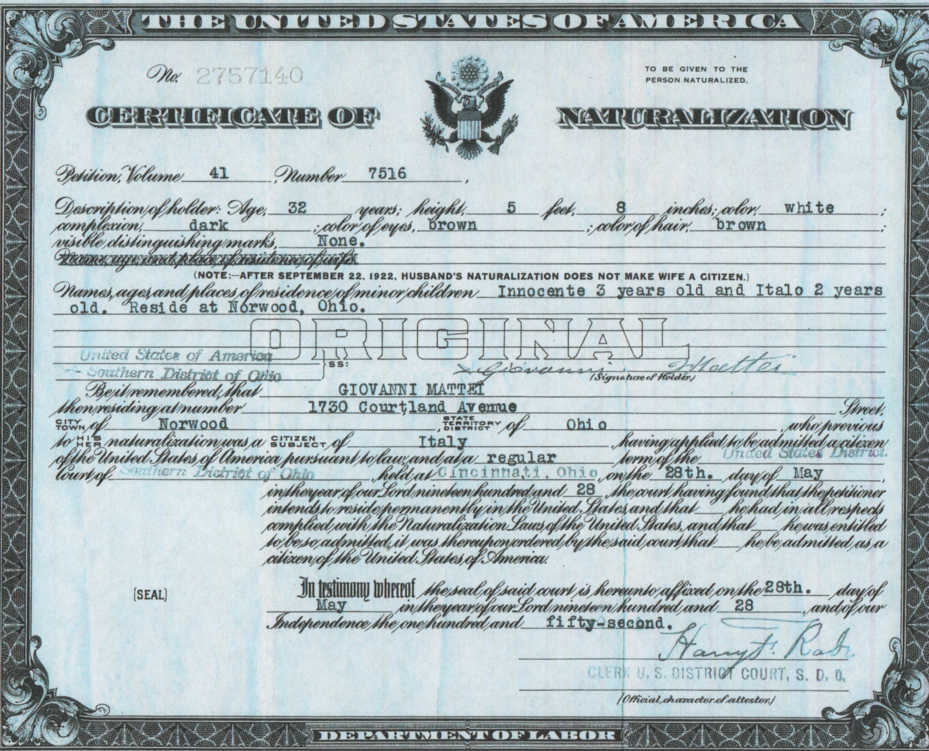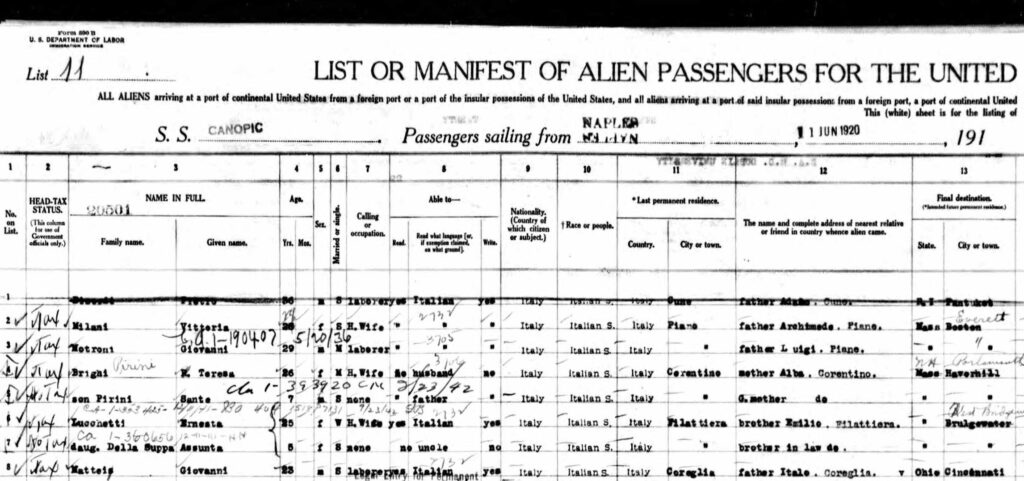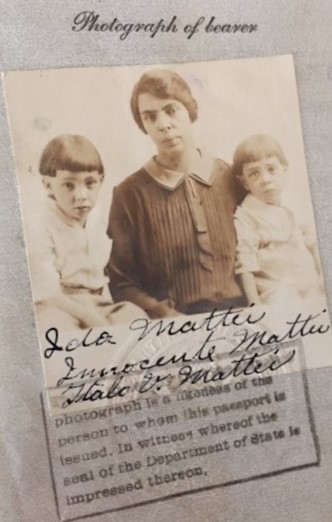The American Dream – Part 1
American Dream?
An element of the American Dream, much overlooked, is the fact that our country is in an on-going attempt to build the definition of “who is an American and who is entitled to the American Dream?” Are the generations of former slaves entitled? Are illegal immigrants entitled? Is everyone who desires to be an American eligible for the full breath of the “dream?” While the concept of an American Dream has existed since the birth of our nation, Freelance writer James Truslow Adams popularized the phrase “American Dream” in his 1931 book.
Excerpt from Epic of America:
“…the American dream, that dream of a land in which life should be better and richer and fuller for every man, with opportunity for each according to his ability or achievement. It is a difficult dream for the European upper classes to interpret adequately, and too many of us ourselves have grown weary and mistrustful of it. It is not a dream of motor cars and high wages merely, but a dream of social order in which each man and each woman shall be able to attain to the fullest stature of which they are innately capable, and be recognized by others for what they are, regardless of the fortuitous circumstances of birth or position… The American dream, that has lured tens of millions of all nations to our shores in the past century has not been a dream of merely material plenty, though that has doubtlessly counted heavily. It has been much more than that. It has been a dream of being able to grow to fullest development as man and woman, unhampered by the barriers which had slowly been erected in the older civilizations, unrepressed by social orders which had developed for the benefit of classes rather than for the simple human being of any and every class.”
In Search of the Dream
My Grandfather in Cincinnati, John Mattei, knew this as an aspiration, not a term. He came in one of the last waves of immigration, just on the cusp of a tightening. John came with one focus: to be the master of his fate, not a pawn of the powerful. He lived a relatively short life but one he fully Americanized. Born in Gromignana, Italy on November 20,1896, John would die suddenly on April 5, 1950, twenty-one days before my birth. John’s parents are Italo Mattei & Diomira Marsili who had three other children, Michael, John’s older brother (also immigrating), a younger sister, Argentina and Elio, his younger brother, who remained in Italy. Michael and Argentina were childless. John had four boys, my father, Inno (1924), Vic (1925), John Jr. (1931) and Bob (1938). Elio had two sons, Velio (1930) and Elio (1939).
U.S. Citizenship, a Ticket to the Dream
John, and his wife, Ida, filed for their citizenship intentions as soon as permitted (January, 1924). Along with Ida, John would attend Citizenship Training through the the Cincinnati Public Schools, learning American History and English. Both naturalizing in 1928, they had just slipped into the country before the U.S. Congress enacted The National Origins Act of 1924 in May of that year, a law severely restricting immigration by establishing a system of national quotas. A quota system prioritizing immigrants from Northern and Western Europe, drastically restricting immigrants from Southern, Eastern Europe and Africa; completely banning Arabs, Asians and Indians. The law’s stated purpose was to ‘preserve the idea of American homogeneity’.” This act would have a direct effect on future Mattei family members who were dreaming of leaving Gromignana, and all those living in America and outside of it who had aspiration of realizing the “dream” as well.

John’s Certificate of Naturalization issued January 18, 1928
Alive In My Imagination
My grandfather, John, is the only grandparent unknown to me. My connection with him is other worldly. I feel close to him and continue to build my relationship on filtered oral history. While emerging into the world shortly after his departure, I imagine myself his earthly substitute; a surreal image of myself that finds credence as it accounts for my thirst to know more about him and my family’s roots. According to my grandmother his love for me (true or not) knew no bounds, hoping I’d be a girl. No wonder his wish though. There were, and still are, a plethora of Mattei men but a dearth of women in our family (a subject for a future post). Early on I knew my grandfather immigrated to America after his service in WWI. According to my father, like many veterans, my grandfather found himself adrift in a changing and challenging world.
All Quiet on the Western Front is a classic novel from the WWI era. Similar to Erich Maria Remarque, a young German solider who is the author, my grandfather became disillusioned. Having experienced gas attacks, injuries and haunting memories, he likely succumbed to a sudden heart attack, in part, due to these maladies. From oral history it isn’t a stretch to imagine my grandfather’s feelings echoing Remarque’s young soldier…
“All Quiet” Excerpt…
“I am young, I am twenty years old; yet I know nothing of life but despair, death, fear, and fatuous superficiality cast over an abyss of sorrow. I see how peoples are set against one another, and in silence, unknowingly, foolishly, obediently, innocently slay one another. I see that the keenest brains of the world invent weapons and words to make it yet more refined and enduring. And all men of my age, here and over there, throughout the whole world see these things; all my generation is experiencing these things with me. What would our fathers do if we suddenly stood up and came before them and proffered our account? What do they expect of us if a time ever comes when the war is over? Through the years our business has been killing;—it was our first calling in life. Our knowledge of life is limited to death. What will happen afterwards? And what shall come out of us?â€â€• Erich Maria Remarque
What Became of Him?
In a cosmic stroke of luck, the Italians would change allegiance late in the war, and John would fight along side the Americans to defeat the Germans. John’s service in WWI made him eligible for immediate immigration to the United States with a green card. Oral history informs us that without hesitation, and never looking back, John landed in Boston, MA in June, 1920, one-hundred years ago this month. His arrival in Boston versus Ellis Island is a result of his veteran status.

A Dream Coming True
Life in America initially proved to be be everything he envisioned. He boarded with his Uncle Zebedeo Mattei, his father’s older brother, who rented a room to John, and other Gromignese who immigrated to Cincinnati. He became part of an established Italian west-side community, welcoming him and supporting his efforts to become an American. John found work right away as a laborer. He found a bride, Ida Liva, marrying and moving in with the Liva family in September, 1922. John and Ida would lose a first child to a miscarriage but go on to have four healthy boys. The Mattei-Liva family would purchase a home and settle down (CLICK HERE to view Courtland Memories). Initially, all John’s dreams were on schedule. In 1928 John sent Ida, Inno and Vic to visit with family in Gromignana and Lestans, Italy. A dream coming true?

The Dream Delayed
Then, the Roaring Twenties were ending with a thud! A depression spread across the globe. The 1930s were difficult. John, along with Nono Liva and a crew of thousands, were building the Cincinnati Union Terminal. After its completion in 1933, work evaporated. John’s health also became an issue. His son, Bob, shares, “he limped to bed at night, and I believed there was still shrapnel in his leg (from WWI wounds).” Bob also writes, “My thoughts are that he died young because of the mustard gas his division was hit with (late in the war). He was one of very few who survived the gas. I believe it caused his early death, because of the longevity of his father and other members of his family.” My Grandmother echoed the same, as did all family members. My grandfather suffered chronically from his war wounds, carrying on nonetheless.
Being An Italian-American Father
While oral history also tells us that John had a very stern side as a parent, his parenting style may be a reflection of a difficult upbringing. Family members attest to the fact that John’s father, Italo, in Bob’s words, “mistreated my Dad,” likely giving John further impetus to escape not only the violence of war but an abusive father (more to come on Italo in a future post). John, while stern, loved his sons and did all in his power to pave the way for his children. Bob shares how John’s love for his sons shined through in his work efforts.
Bob Writes…
“I was only eleven when my Dad died (but) I know from XU football players who worked with him (that) during some summers that his work ethic was unreal. One, Jim L., told me he put them to shame. They could not keep up with him. His work in terrazzo and mosaic, that I have seen, and once witnessed was unreal. The work he performed at the Cincinnati Milling Machine Co., so impressed Mr. Geier, the CEO, that he hired your Dad, and eventually your Uncle John and me. It’s a shame that I didn’t get to spend more time with him. I know, via my mother, that he was mistreated by a number of his employers, lied to and even cheated. Things got better for him, but I use to dream that I would get a business degree, and we would open our company, and he would be the KING.“
The King Paves The Way
While shy of the full American Dream experience, John would pave the way for his sons. My grandparents, all models of strong work ethics, opened doors for all who follow. Writing in moments of civil unrest, I wonder, “How in the world were my four grandparents able to establish a dream life within just one generation while others still wait?” My grandparents owned their owned homes. Their 1st generation children owned their homes, some had businesses, all found good jobs. Education higher than 3rd grade a given for all. The 2nd generation counting 29 (my generation); enjoying more than our parents. The word privilege comes to mind. What is my responsibility to all who strive for what I have come by so easily? What can I do as a retired 70 year woman old to ensure everyone in the world has a shot at the American Dream?

Excellent writing and a riveting read! Thank you for sharing, Julie!
Julie
Thanks for sharing this! Very well written and researched. It’s fantastic that you are doing this for our family!
Thanks
Tony
great read Julie. I wish Icould have met granpa Mattei(Nono). I remember as a child the stories from time to time after afamily dinner. All the brothers would share memories about Nono. It was usually around the holidays. I asked uncle Mike one day and he went on for it seemed to be hours. It was riveting.
Thank you very much..